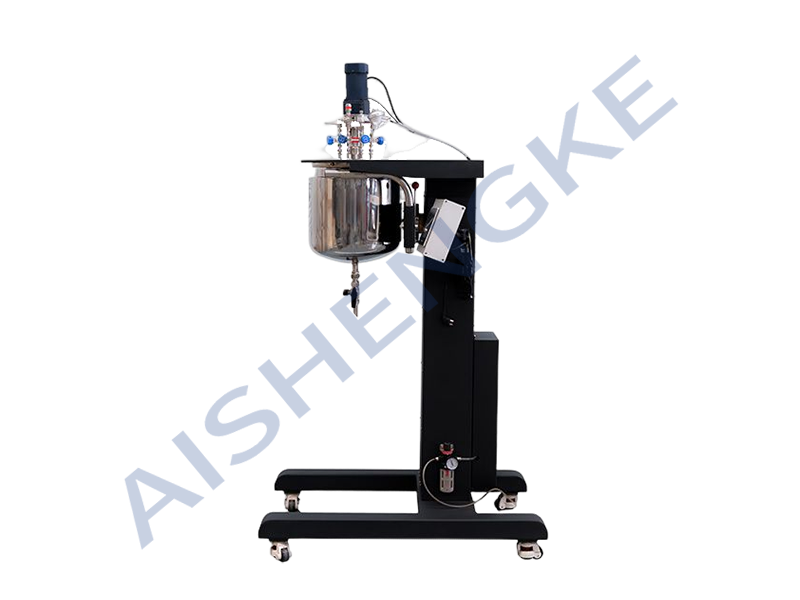Application scope of stainless steel reactor
Release Time:
2022-11-04
Pageviews:
Stainless steel reactors are widely used in pressure vessels for reaction, evaporation, synthesis, polymerization, saponification, sulfonation, chlorination, nitration and other processes in chemical, food, paint, hot melt adhesive, silica gel, paint, medicine, and petrochemical production. , such as reactors, reaction kettles, decomposition kettles, polymerization kettles, etc. The reaction pot is mainly composed of four parts: the inner tank, the jacket, the stirring device and the support seat (the thermal insulation structure can be adopted according to the process needs).

The inner tank body is made of stainless steel (SUS304, SUS316L or SUS321) and other materials according to the needs of the process. The inner surface is mirror polished, which can be cleaned by CIP online and sterilized by SIP, and meets the requirements of hygiene standards.
The jacket is made of stainless steel (SUS304) or carbon steel (Q235-B) according to the process requirements.
Appropriate diameter-to-height ratio design, customized stirring device on demand; the stirring shaft seal adopts pressure-resistant sanitary mechanical seal device to maintain the working pressure in the tank and prevent unnecessary pollution and material loss caused by leakage of materials in the tank.
The supporting type adopts the hanging lug type or the floor outrigger type according to the operation requirements.
Latest News
2024-09-03
Abstract: Oil deacidification is an important step in food processing, which aims to remove free fatty acids in oil and improve its quality and stability. Traditional deacidification methods have some limitations, such as low efficiency, high energy consumption, and loss of nutrients. In recent years, molecular distillation technology has gradually attracted attention as a new deacidification method. This article will introduce the application of molecular distillation in oil deacidification, including the principle, operation process and advantages, and focus on the outstanding advantages of Aishengke in molecular distillation technology.
Vitamins are products that are closely related to people's lives, and have become one of the main bulk products in the international pharmaceutical and health care products market. The amount of vitamin E is the largest, followed by vitamin A, vitamin C, vitamin D and so on. With the growth of economy and the improvement of people's living standards, the demand for vitamin products will further increase, and people's requirements for their quality and grade will also further increase. Therefore, as an important separation technology in the production of many vitamins, molecular Distillation technology will also play an increasingly important role in the vitamin industry.
Glyceryl monostearate (GMS), abbreviated as monoglyceride, is produced from natural vegetable oils and fats. The active ingredient is purified by molecular distillation technology to more than 90%, also known as molecular distillation monoglyceride. It is the most widely used food Additives, safe to use in the production and processing of food, medicine, plastics, etc., account for more than half of the emulsifier consumption in the market.
The principle of molecular distillation is to make use of the different degrees of affinity between different molecules. By controlling the conditions such as temperature and pressure, the mixture begins to vaporize. Different components in the vapor form liquids in the condenser and are separated according to their boiling points. This distillation method not only has a good separation effect, but also can be repeatedly separated and purified, and is widely used in chemical, pharmaceutical and other fields.
Molecular distillation is a common chemical method used to separate and purify compounds. In the pharmaceutical industry, molecular distillation is widely used in pharmaceutical purification. This article will focus on the application of molecular distillation in pharmaceutical purification and provide some specific examples.
Laboratory vacuum distillation equipment has undergone significant advancements in recent years, driven by the need for higher efficiency, improved safety, and enhanced user experience.
Global recruitment of distributors
If you recognize the brand, technology, products and market prospects of Aishengke, we look forward to establishing a strategic partnership with you for win-win cooperation and development. Looking forward to your joining!

